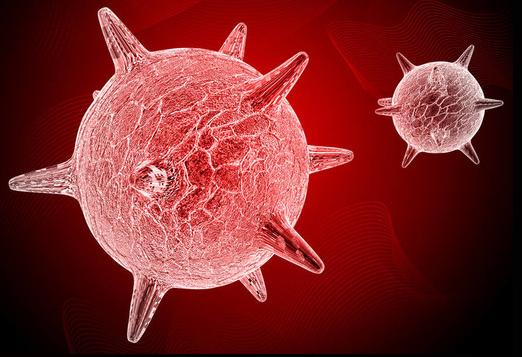Genital Herpes May Cause Prostatitis, Why?
Date:2022-11-14 click:0
In modern society, the incidence of genital herpes is increasing yearly. Besides, the rapid spread of it has led to an increasing number of people suffering from the disease. Thus, many people are severely afflicted by it. Although there has been an increase in concern for genital herpes among some people, awareness of the disease is still minimal. Since both conditions occur in the reproductive tract, can genital herpes cause prostatitis? This question is explored below.

Genital herpes is caused by a virus called Herpes simplex virus. It has a high incidence and transmission rate and is not easily curable as a sexual contact disease. Genital herpes often occurs in the external genitalia and anal areas. If genital herpes is not treated promptly and effectively, the virus will multiply in the patient's body over time.
It will then enter the urethra from the glans and travel up the urethra into the posterior urethra and prostate, leading to various complications such as disseminated herpes, prostatitis, herpes meningitis, spinal nerve root disease, and male infertility. Therefore, genital herpes can cause prostatitis.
In addition, when people's immunity is low, for example, when they have a respiratory infection or a cold, or when a woman is in her period or is overworked, they may be infected with the virus and may even have recurring attacks. The recurrence rate of the virus is up to 60%.
The low immunity of the body may lead to the development of nonbacterial prostatitis. This is because the body's immunity is low, so the risk of urethral and prostate infection is increased. Thus, inflammation is especially easy to appear when the prostate is very weak against germs. So the body's various viruses, such as the herpes virus, can easily attack the prostate, leading to prostatitis.
The genitals are one of the most important reproductive organs of the human body and should not have any adverse symptoms. Genital herpes, as a sexually transmitted disease, is naturally harmful to the genitals, which may bring a double blow to the patient physically and psychologically. Therefore, when genital herpes recurs, it is recommended that patients go to a regular hospital for scientific and standardized treatment as soon as possible to stop the development of the disease.
The treatment of genital herpes is mainly antiviral, which aims to relieve symptoms, reduce pain, shorten the course of the disease and prevent secondary infections. Patients should keep the genital area clean and dry, and they can disinfect this area with iodophor disinfectant. Topical antibiotic creams can be used in case of bacterial infections, and antiviral medications such as valacyclovir can be taken if necessary.
The primary treatment for prostatitis is antibacterial. This treatment aims to reduce inflammation and relieve pain. Besides, physical therapy can be used, for example, massage, heat therapy, etc. Then the condition can be treated by surgery when it is serious.
If the patient has inflammation in the prostate, then the traditional Chinese medicine Diuretic and Anti-inflammatory Pill is a good choice. It can act on the entire urinary and reproductive system simultaneously to eliminate the inflammation of the genitals and will not harm the body with remarkable effects.
Patients with genital herpes and prostatitis usually have to maintain good habits and avoid unclean sexual intercourse, and they should avoid multiple sexual partners. They can maintain personal hygiene and avoid eating spicy and stimulating foods. In addition, they should improve their immune capacity to promote the body and achieve recovery as soon as possible.
Recommended Readings:



